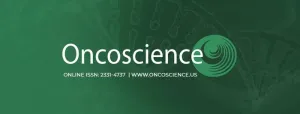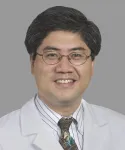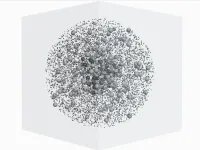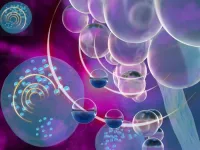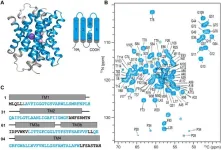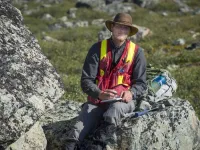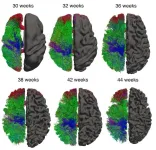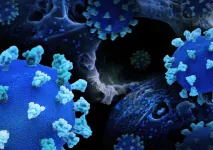(Press-News.org) The unique symposium, taking place 22-24 September 2023, is designed to highlight progress in the continuum of stem cell science from early development into clinical applications. Scientists from Latin America and across the globe are convening to share their latest stem cell research in areas such as pluripotency and early development and its adult counterpart, tissue stem cells and regeneration. Advances in understanding cellular plasticity through reprogramming and directed differentiation will be showcased as will the emerging field of tissue self-organization dynamics and innovative new technologies and tools that are driving the field forward. The program will be capped by sessions on the advances in modeling and treating disease and some of the ethical issues that scientists (and the public) are confronting.
Opening Session
Welcome: Keith Alm, CEO, ISSCR
Keynote: Malin Parmar, PhD, Lund University, Sweden
Eftychia Apostolou, PhD, Weill Cornell Medical College, USA
Pluripotency and Reprogramming
Nissim Benvenisty, MD, PhD, The Hebrew University of Jerusalem, Israel
Lygia da Veiga Pereira, PhD, Universidade de São Paulo, Brazil
Juliane Viegas, The Hebrew University of Jerusalem, Israel
Keynote: Amander Clark, PhD, University of California, Los Angeles, USA
Development
Dieter Egli, PhD, Columbia University, USA
Kieran Harvey, PhD, Peter MacCallum Cancer Centre, Australia
Guillermo Lanuza, PhD, Fundación Instituto Leloir, Argentina
Zsuzsanna Izsvák, PhD, Max Delbrück Center (MDC), Germany
Adult Stem Cells and Regeneration
Fiona Doetsch, PhD, University of Basel, Switzerland
Sophie Jarriault, PhD, Institute of Genetics, Molecular and Cellular Biology, France
Rosalia Mendez-Otero, MD, PhD, Federal University of Rio de Janeiro (UFRJ), Brazil
Carlos E. Da Silva Goncalves, MSc, School of Pharmaceutical Sciences of the University of São Paulo, Brazil
Directed Differentiation and Transdifferentiation
Esteban O. Mazzoni, PhD, New York University, USA
Marius Wernig, MD, PhD, Stanford University, USA
Iván Velasco, PhD, National Autonomous University, Mexico
Xi Wang, PhD, Harvard University, USA
Leveraging Tools to Study Stem Cell Biology
Knut Woltjen, PhD, CiRA, Kyoto, Japan
Stevens Rehen, PhD, D’Or Institute for Research and Education, Brazil
Maria Carolina Marchetto, PhD, University of California, San Diego, USA
Jian Shu, PhD, Massachusetts General Hospital (MGH), Harvard University, USA
César Meléndez, MS, Instituto de Fisiología Celular UNAM, Mexico
Self-Organization of Structures
Jose Polo, PhD, The University of Adelaide, Australia
Nicolas Rivron, PhD, Institute of Molecular Biotechnology, Austrian Academy of Science, Austria
Jun Wu, PhD, University of Texas Southwestern Medical Center, USA
Disease Modeling
Marimélia Porcionatto, PhD, Federal University of Sao Paulo (UNIFESP), Brazil
Alysson Muotri, PhD, University of California, San Diego, USA
Verónica Palma, PhD, Universidade de Chile, Chile
Thomas Hutschalik, MSc, Ncardia Services B.V., Netherlands
André Teles E. Silva, Hospital Israelita Albert Einstein, Brazil
Ethics and Unproven Stem Cell Therapies in South and Latin America
Fernando Pitossi, PhD, Fundación Instituto Leloir, Argentina
María de Jesús Medina-Arellano, PhD, Institute of Legal Research UNAM, Mexico
Megan Munsie, PhD, University of Melbourne, Australia
Mairim Solis, PhD, Gorgas Memorial Institute for Health Studies/National Bioethics Research Committee in Panama, Panama
Clinical Applications of Stem Cell Biology
Mahendra Rao, MBBS, PhD, panCELLa, Canada
Antonio Carlos Campos de Carvalho, MD, PhD, Federal University of Rio de Janeiro (UFRJ), Brazil
Nayara Leite, PhD, Vertex Pharmaceuticals, USA
Quinn Peterson, PhD, Mayo Clinic, USA
In combination with this meeting, the ISSCR has partnered with the São Paulo Research Foundation (FAPESP) and The Federal University of São Paulo (UNIFESP) to develop and present the São Paulo School of Advanced Science in Stem Cell Biology in the week leading up to the International Symposium. The program consists of 100 undergraduate and graduate students, and post-doctoral scholars from across Brazil and the world. The ISSCR is proud to support this course and make stem cell science accessible to students worldwide.
To register to attend virtually, visit this link. The program will be available for all registrants on demand following the meeting. Media should contact kkilbourne@isscr.org to request complimentary access.
###
END
A Texas A&M-led research team has discovered that a population of endangered red-crowned parrots is thriving in urban areas of South Texas. The parrots are a unique case, considering that many animal species are affected negatively by the expansion of human urban areas, which can lead to deforestation and pollution of natural habitats.
These mostly green parrots, which have a cluster of bright red feathers on their heads, are also an unusual example of a species that has adapted well in the face of poaching and the pet trade ...
“We have summarized some of our findings regarding the response of various subsets of CRC to kinase inhibitors [...].”
BUFFALO, NY- September 22, 2023 – A new editorial paper was published in Oncoscience (Volume 10) on June 27, 2023, entitled, “Kinase-targeted therapy in subsets of colorectal cancer.”
In this new editorial, researchers Patricia M. Gomez Barila and Jan Paul Medema from the University of Amsterdam and Amsterdam University Medical Centers discuss colorectal cancer (CRC) — one of the most commonly diagnosed cancers and the second leading cause of cancer-related deaths worldwide. Early diagnosis and adequate treatment are crucial ...
MIAMI, FLORIDA (Sept. 22, 2023) – Researchers at Sylvester Comprehensive Cancer Center at the University of Miami Miller School of Medicine found an association between “social determinants of health” and outcomes and survival in patients undergoing surgery and treatment for non-small cell lung cancer.
The findings are based on a statistical scoring system the researchers developed that consolidates and analyzes several measures of socioeconomic status and related factors.
“We believe our social determinants of health scoring system is the first to provide a composite perspective on many of the ...
A research team led by Prof. WANG Junxian from the University of Science and Technology of China (USTC) of the Chinese Academy of Sciences (CAS) revealed a clumped, multi-component eclipsing absorber in a study of X-ray occultation events in the active galaxy NGC 6814. The results were published in Monthly Notices of the Royal Astronomical Society on Aug. 23.
Active galactic nuclei have strong X-ray emission originating in a compact region near the supermassive black hole, the so-called corona region. When an absorbing ...
UNIVERSITY PARK, Pa. — Macrophages are little cells vital to the immune system and could possibly inform cell-based therapies for a variety of medical conditions. However, realizing the full potential of macrophage therapies relies on being able to see what these cellular allies are doing inside our bodies, and a team of Penn State researchers may have developed a way to watch them do their thing.
In a study published in the journal Small, the Penn State researchers report a novel ultrasound imaging technique to view macrophages continuously in mammal tissue, with potential for human ...
On August 23, 2023, a research team led by SHI Chaowei from the University of Science and Technology of China (USTC) of the Chinese Academy of Sciences (CAS) published a paper titled "Fluoride permeation mechanism of the Fluc channel in liposomes revealed by solid-state NMR" in Science Advances. The team adopted the fluoride ion channel protein Fluc-Ec1 combined with deuterium substitution and 19F labeling methods, paving a new path for membrane protein nuclear magnetic resonance (NMR) research.
NMR not only provides insights into molecular structures ...
UNIVERSITY PARK, Pa. — The Earth’s crust continued a slow process of reworking for billions of years, rather than rapidly slowing its growth some 3 billion years ago, according to a Penn State-led research team. The new finding contradicts existing theories that suggest the rapid formation of tectonic plates earlier in Earth’s history, researchers said.
They published the research in Geochemical Perspectives Letters.
The work may help answer a fundamental question about our planet and could hold clues as to the formation of other planets, according to lead author ...
How similar are dinosaurs to modern birds? This question is at the heart of a new study that examined how proteins found in dinosaur feathers changed over millions of years and under extreme heat.
Previous studies suggest that dinosaur feathers contained proteins that made them less stiff than modern bird feathers. Now, researchers with University College Cork (UCC), the Stanford Synchrotron Radiation Light Source (SSRL) at the Department of Energy's SLAC National Accelerator Laboratory and other institutions have discovered that dinosaur feathers originally had a very similar protein composition to those of modern birds. That result ...
A single brain is unfathomably complex. So brain researchers, whether they’re looking at datasets built from 300,000 neurons in 81 mice or from MRIs of 1,200 young adults, are now dealing with so much information that they must also come up with new methods to comprehend it. Developing new analysis tools has become as important as using them to understand brain health and development.
A team including researchers at the University of Washington recently used new software to compare MRIs from 300 babies and discovered that myelin, a part of the brain’s so-called white matter, develops much slower after birth. The researchers published their findings Aug. ...
A clinical trial has launched to test whether early intensive immune modulation for hospitalized COVID-19 patients with relatively mild illness is beneficial. The placebo-controlled study, part of the global clinical trials consortium known as Strategies and Treatments for Respiratory Infections and Viral Emergencies (STRIVE), will enroll approximately 1,500 people at research sites around the world. It is supported by the National Institutes of Health’s National Institute of Allergy and Infectious Diseases (NIAID) in partnership with NIH’s National Center for Advancing Translational Sciences (NCATS).
Immune ...

